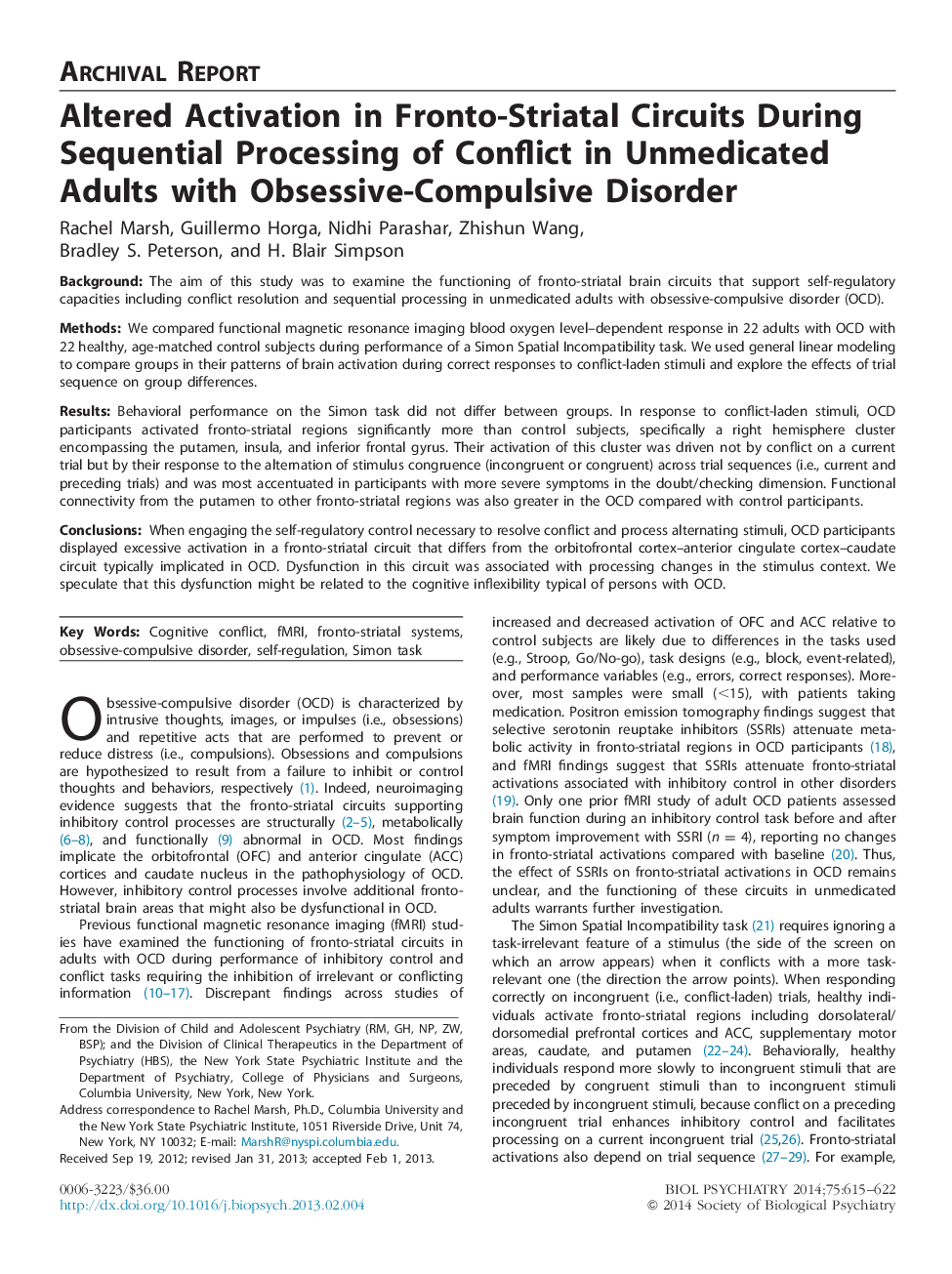| کد مقاله | کد نشریه | سال انتشار | مقاله انگلیسی | نسخه تمام متن |
|---|---|---|---|---|
| 6227274 | 1276441 | 2014 | 8 صفحه PDF | دانلود رایگان |
BackgroundThe aim of this study was to examine the functioning of fronto-striatal brain circuits that support self-regulatory capacities including conflict resolution and sequential processing in unmedicated adults with obsessive-compulsive disorder (OCD).MethodsWe compared functional magnetic resonance imaging blood oxygen level-dependent response in 22 adults with OCD with 22 healthy, age-matched control subjects during performance of a Simon Spatial Incompatibility task. We used general linear modeling to compare groups in their patterns of brain activation during correct responses to conflict-laden stimuli and explore the effects of trial sequence on group differences.ResultsBehavioral performance on the Simon task did not differ between groups. In response to conflict-laden stimuli, OCD participants activated fronto-striatal regions significantly more than control subjects, specifically a right hemisphere cluster encompassing the putamen, insula, and inferior frontal gyrus. Their activation of this cluster was driven not by conflict on a current trial but by their response to the alternation of stimulus congruence (incongruent or congruent) across trial sequences (i.e., current and preceding trials) and was most accentuated in participants with more severe symptoms in the doubt/checking dimension. Functional connectivity from the putamen to other fronto-striatal regions was also greater in the OCD compared with control participants.ConclusionsWhen engaging the self-regulatory control necessary to resolve conflict and process alternating stimuli, OCD participants displayed excessive activation in a fronto-striatal circuit that differs from the orbitofrontal cortex-anterior cingulate cortex-caudate circuit typically implicated in OCD. Dysfunction in this circuit was associated with processing changes in the stimulus context. We speculate that this dysfunction might be related to the cognitive inflexibility typical of persons with OCD.
Journal: Biological Psychiatry - Volume 75, Issue 8, 15 April 2014, Pages 615-622
